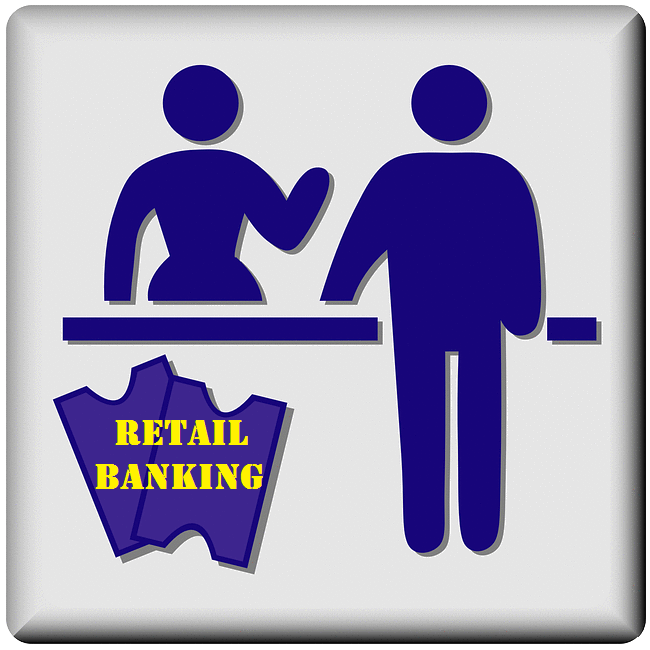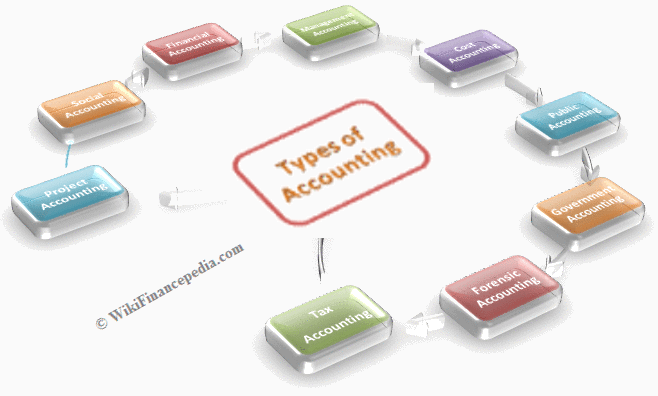Retail Banking is the provision of consumer-oriented services to individual consumers. This does not include services to companies, corporations, entrepreneurs or other banks. In financial services, retail banking refers to financial services offered by a financial institution to consumers who are not themselves financial organizations. In this topic, let us understand what is retail banking, how retail banking works, role of retail banking and services provided by retail banking in depth.
Services offered include checking transactions and saving accounts, business debit cards, deposit plans, certificates of deposit (CDs), retirement plans, children plans, educational plans, mortgage loans, personal loans, business loans and other diversified types of loans. These services distinguish banking services from banking services like investment banking, commercial banking, etc. In some cases Investment banks, commercial banks or large banks persevere department of business relationship with retail customers as well.
Retail Banking Definition
The term “retail banking” refers to financial services provided to people rather than companies, and it is used to refer to banking that is referred to as “consumer banking” or “personal banking” in the banking sector. Customers may manage their money, get credit, and deposit their money in a safe and secure atmosphere by participating in retail banking operations.
In other words, retail banking is the provision of financial services by financial institutions to individuals which are referred to as “institutional customers.”
Commercial banks in United State of America are also considered as Retail Banks and investment banks are limited to Investing capital in markets activities. This partition was cancelled in year 1990s and henceforth Commercial bank deals with loans and deposits from corporations or large businesses and Retail bank deals with loans and deposit from common individuals.
How Retail Banking works
Retail banks offers services to common people. Retail refers to front shop for commercial banking services. Many commercial banks deals with retail banks for services and products as well. In the banking industry, retail banking refers to banking that works directly with individual clients and offers them with basic financial services such as savings bank accounts, mortgages, personal loans, debit cards, credit cards, and safe deposit boxes.
Retail banks are often organized into regional groups, each of which has a central office and a number of branches in various locations to service a varied variety of consumers. Nonetheless, in addition to the aforementioned tasks, these financial institutions also offer services to retail clients, and they do so on a regular basis for commercial enterprises as well.
Example of Retail Banking
Jennifer goes to ICICI Bank with the intension to obtain personal banking services with Rs.10,000/- in hand. She deposit Rs.10,000 paycheck into saving account and meet bank representative for various schemes offered by bank. Bank representative explain him the retirement schemes, children education saving plan, home loan schemes, etc.
After discussion she considered to apply for home loan. Jennifer was very much satisfied with bank services because at one place she was able to deposit money, plan for future and get best suitable scheme for her. customer satisfaction is one of the primary focus for retail banks.
Role of Retail Banking in Individual Life
With the money that retail banks receive from their depositors, they provide loans to other businesses. Rather of charging higher interest rates on deposits, these financial institutions generate money by charging higher interest rates on loans.
Regulation of the Indian banking sector is carried out by the Reserve Bank of India (RBI), which is governed by the Banking Regulation Act established in 1949. Whereas in U.S.A, banking sector is regulated at state level and federal government.
Retail banking is a structure that allows products and services in one place and can be avail from any of the branch locations. Large retail banks are also termed as international retail banking where individual can obtain services worldwide.
Now days, online banking provide individual product and services information on mobile retail banking over cell phone or online retail banking wrapped up in websites. Retail banking is mainly known for small business banking or personal banking.
Services Offered by Retail Bank
These are the products and services offered by retail banks to the individual customers.
Bank Accounts
Bank accounts include things like checking accounts, savings accounts, and retirement accounts, to name a few examples. When you open a checking account, you’ll get a debit card that may be used to make purchases, as well as the option to pay bills online or by electronic means. Money market accounts provide a somewhat greater interest rate than savings accounts, but there are certain limits on how often the money may be withdrawn.
Safe Lockers
In order to prevent your valuables from being stolen or damaged while you are away from home, little value safes are housed in Safes inside the bank’s walls.
Deposits
The interest rates on Certificates of Deposit (CDs) are greater than those on savings accounts, but you must normally leave your money in the account for at least several months in order to avoid being charged an early withdrawal fee.
Personal Loan
Unsecured personal loans may be used to pay a number of costs without the need to put up any kind of collateral as a form of security. The capacity to spend and repay repeatedly is provided through revolving lines of credit (such as credit cards), allowing borrowers to avoid having to qualify for a new loan each time.
Auto Loans
Individuals may get auto loans to aid them in the purchase of a car. Auto loans can also be refinanced.
Home / Mortgage Loans
Homes are purchased with the help of mortgage loans, and second mortgages allow borrowers to refinance current debts or withdraw cash from the value of their property.
Conclusion
Because of these retail banking services, products and facilities, people’s capacity to manage their funds is increased significantly. Without a bank account, it is possible to live a normal life, but it is much more difficult. If banks and credit unions are not accessible, you may find yourself spending more time on normal chores and paying more costs for one-time transactions if you do not have access to them. Now you would have known the what is retail banking, importance and role of retail banking along with the services offered by retail banking to the individual customers.
Read E-Learning Tutorial Courses - 100% Free for All
Basics of Banking and Financial Services for Beginners
- Chapter 1: What is Bank and Role of Bank in Economic Development
- Chapter 2: Different Types of Financial Services Provided by Banks
- Chapter 3: Different Types of Banking and Financial Institutions
- Currently Reading: What is Retail Banking and Services provided by the Banks
- Chapter 5: What is Commercial Bank and Services offered by Banks
- Chapter 6: What is Private Banking and Services offered by Best Banks
- Chapter 7: What is Investment Banking and Services offered by Bankers
- Chapter 8: What is Investment? How to Start Systematic Investment Plan?
- Chapter 9: What is Fixed Income Securities Market?
- Chapter 10: What are Bond Funds? Difference between Stocks and Bonds
- Chapter 11: What is Stock Market? How to Invest in Stock Market?
- Chapter 12: What is a Mutual Funds? Types of Mutual Funds with Examples
- Chapter 13: What is Futures Trading? How to Trade in Future Contracts?
- Chapter 14: What is Options Trading? How does Options Trading Works?
- Chapter 15: Banking Quiz - Basics of Banking and Financial Services for Beginners







